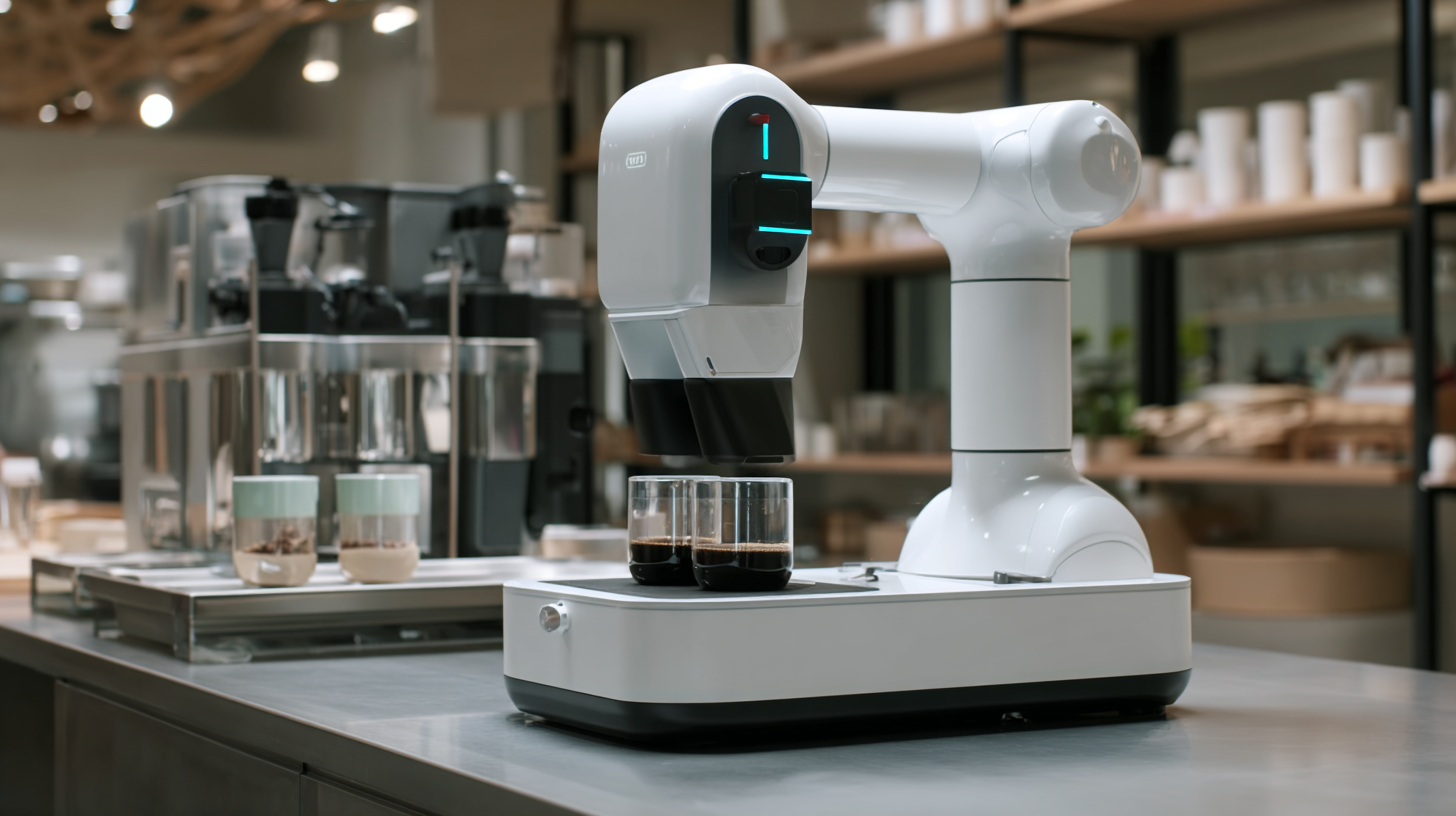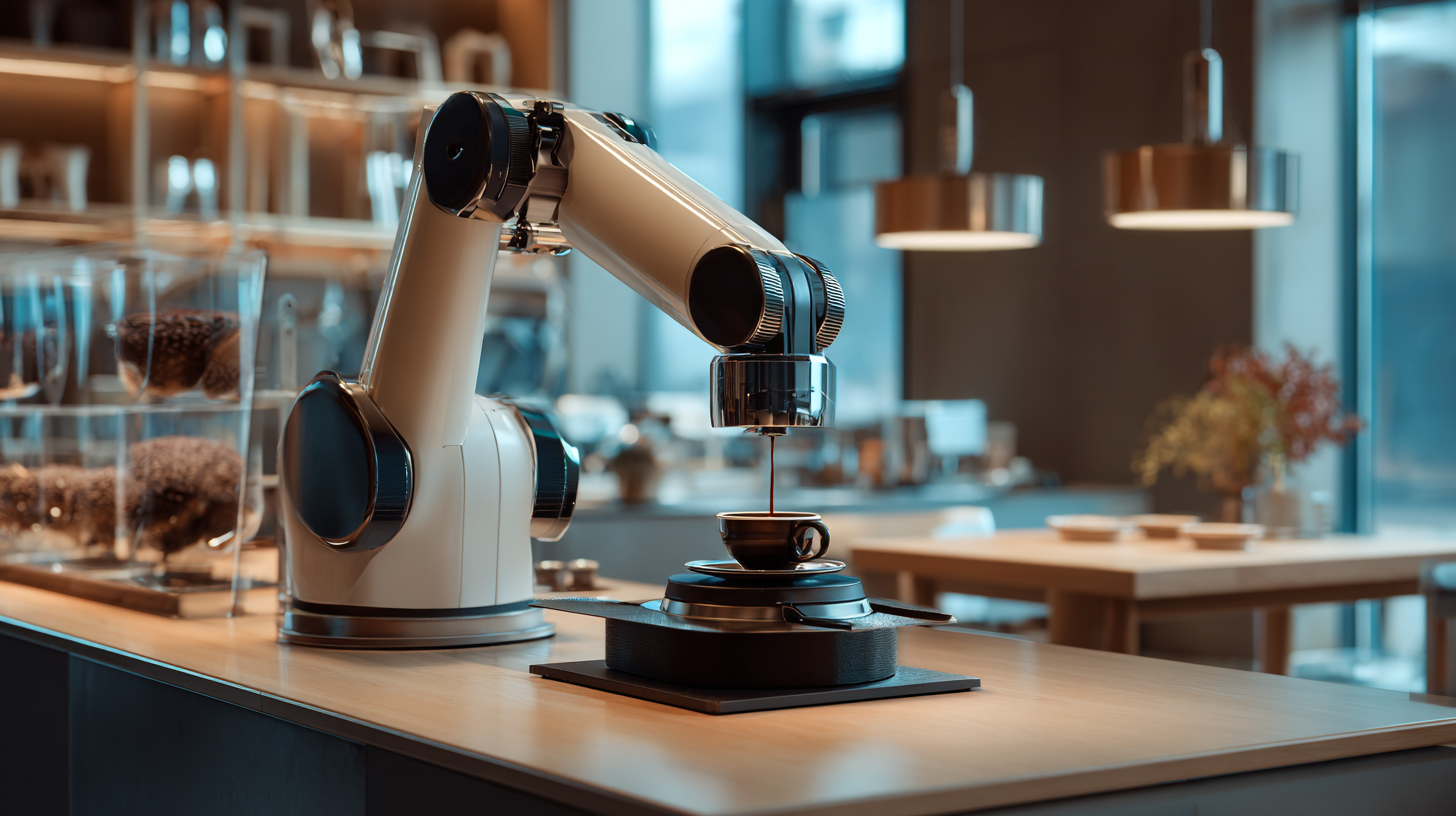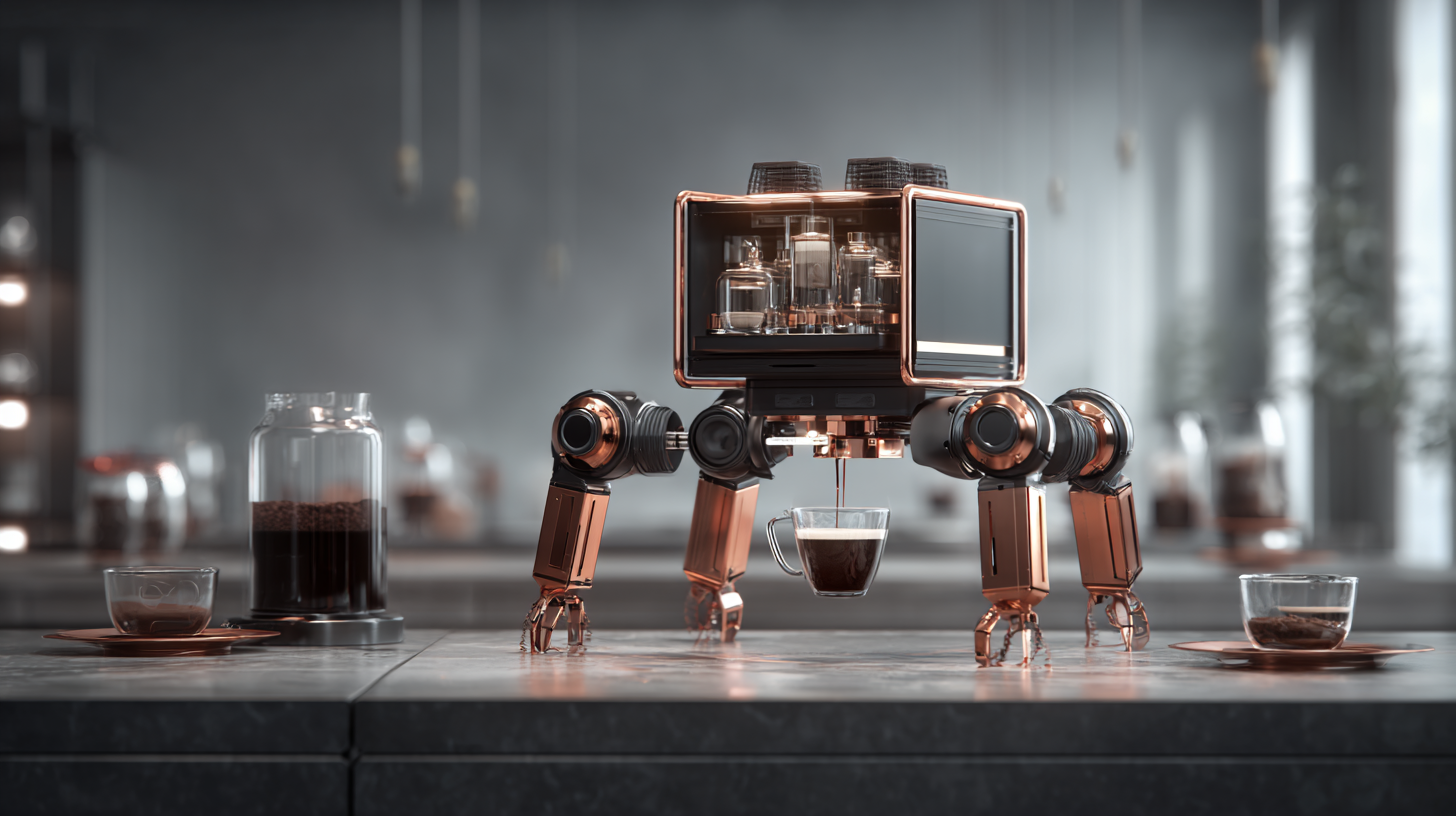
Exploring the Future of Coffee Robotics: How AI is Brewing Innovation in the Cafeteria
As the coffee industry continues to evolve, the advent of advanced technologies has catalyzed a transformation that goes beyond mere convenience; it is redefining the way coffee is brewed and served in cafeterias worldwide. According to a recent report by Grand View Research, the global coffee machine market is expected to reach $17.6 billion by 2025, growing at a CAGR of 5.6%. A significant contributor to this growth is the increasing adoption of coffee robotics, which promise to streamline operations and enhance the quality of the coffee experience.
Coffee robots are at the forefront of this innovation, leveraging artificial intelligence and automation to replicate, and even surpass, the precision of traditional baristas. Research from the National Coffee Association indicates that coffee consumption has surged, with 62% of Americans drinking coffee daily. This rising demand underscores the necessity for cafeterias to adopt efficient solutions that can meet customer expectations without compromising on quality. By integrating AI-driven coffee robots into their operations, businesses can not only improve efficiency and consistency but also reduce labor costs, all while delivering an exceptional beverage experience.
As we delve into the future of coffee robotics, it is essential to consider how these technologies are reshaping not only production processes but also consumer engagement and sustainability. The impact of coffee robots extends beyond operational efficiency; it is an integral part of a broader narrative about innovation and adaptation in the fast-evolving coffee landscape.

Understanding the Role of AI in Coffee Brewing Processes
The integration of artificial intelligence in coffee brewing processes is transforming how we experience this beloved beverage. AI technologies are being employed to optimize various aspects of coffee preparation—from bean selection to brewing techniques—ensuring that every cup is crafted to perfection. Machine learning algorithms analyze data on grind size, water temperature, and extraction time to create consistency in flavor and aroma, catering to the specific preferences of individual consumers.
Robotics in cafes is also enhancing efficiency and productivity. Automated baristas equipped with sophisticated AI systems can replicate intricate brewing methods, allowing for quicker service during peak hours. These systems not only reduce human error but also enable baristas to focus on customer interaction and experience rather than mundane tasks. As AI continues to evolve, the potential for innovative coffee brewing technologies that enhance both quality and service in cafeterias appears limitless.
Exploring the Future of Coffee Robotics: AI's Impact on Brewing Efficiency
Choosing the Right Robotics for Your Cafeteria Setup
When it comes to modernizing cafeteria setups, selecting the right robotics technology is pivotal. According to a 2022 report by the International Coffee Organization, the global coffee market is projected to grow to approximately $102.02 billion by 2025. This promising growth opens the door for integrating advanced robotics and AI-driven solutions to enhance operational efficiency and customer experience. Cafeterias aiming to keep pace with evolving consumer preferences must evaluate their technology options carefully.
Incorporating robotics into your cafeteria can streamline various processes, from brewing to serving. For instance, companies like Cafe X have demonstrated how robotic baristas can brew and serve high-quality coffee in less time than traditional methods, reducing wait times by up to 30%. Moreover, the use of robotic systems can lead to a reduction in labor costs, with estimates suggesting that robotic solutions can save up to 20% of operational expenses annually. It’s essential for decision-makers to consider the specific needs of their setup, including the volume of customers, types of beverages offered, and the overall ambiance they want to create, to select the most suitable robotic solutions that align with these factors.
Integrating AI Solutions for Enhanced Customer Experience
The integration of AI solutions in coffee robotics is revolutionizing customer experience in cafeterias. By leveraging advanced algorithms and machine learning, these AI systems can personalize orders based on individual preferences and past behaviors. Imagine walking into a cafe, and the coffee machine recognizes you, suggesting your favorite drink or even recommending new items based on your taste profile. This not only streamlines the ordering process but also enhances customer satisfaction, creating a more engaging and enjoyable café environment.
Moreover, AI-driven coffee robots can gather real-time data to optimize service efficiency. For instance, they can predict peak hours and adjust the brewing process accordingly, ensuring that beverages are served at their fresh peak while reducing waiting times. Additionally, integrating AI chatbots can facilitate communication, allowing customers to place orders through their smartphones or even through voice commands. The result is a seamless interaction between technology and customer service, paving the way for a future where robotics and AI elevate the café experience to new heights.

Training Staff to Work Alongside Coffee-Focused Robotics
As the integration of coffee-focused robotics continues to evolve, training staff to work alongside these advanced machines becomes crucial. Recent studies show that the global market for coffee robots is projected to reach $1.5 billion by 2025, indicating a significant shift in how coffee is produced and served. This transformation not only enhances efficiency but also requires baristas and cafeteria staff to adapt to new technologies that streamline operations and elevate customer experiences.

Proper training programs are essential for empowering employees to collaborate effectively with robotic systems. According to a 2022 report by McKinsey, over 80% of retail workers believe that their roles will augment rather than eliminate the need for human skill in coffee service. By focusing on upskilling staff, companies can harness the full potential of robotics while maintaining a personal touch that customers appreciate. Investing in comprehensive training ensures that staff members become adept at managing coffee robots, troubleshooting issues, and elevating the art of coffee making, all of which can significantly enhance customer satisfaction and loyalty in the long run.
Measuring Efficiency and Customer Satisfaction in Automated Cafés
In recent years, the integration of robotics and artificial intelligence in the coffee industry has drastically transformed automated cafés, enhancing both operational efficiency and customer satisfaction. According to a report by the International Coffee Organization, the global coffee market is expected to reach $102.15 billion by 2025, with automation playing a significant role in meeting growing consumer demands. Automated coffee machines that use AI can brew up to 200 cups per hour, compared to just 60 cups by a traditional barista. This surge in productivity not only streamlines service during peak hours but also minimizes labor costs, allowing café owners to redirect resources toward improving customer experience.
Moreover, customer satisfaction metrics are showing promising results in these automated environments. A recent study by the Specialty Coffee Association found that 75% of consumers appreciate the consistency of flavor and quality achieved by robotic baristas, which reduces the variability often associated with human preparation. Additionally, automated systems equipped with customer feedback channels can adapt recipes and services in real-time based on consumer preferences, leading to higher levels of engagement and loyalty. As cafés increasingly adopt these innovations, the synergy between efficiency and customer satisfaction will undeniably shape the future of the coffee experience.
